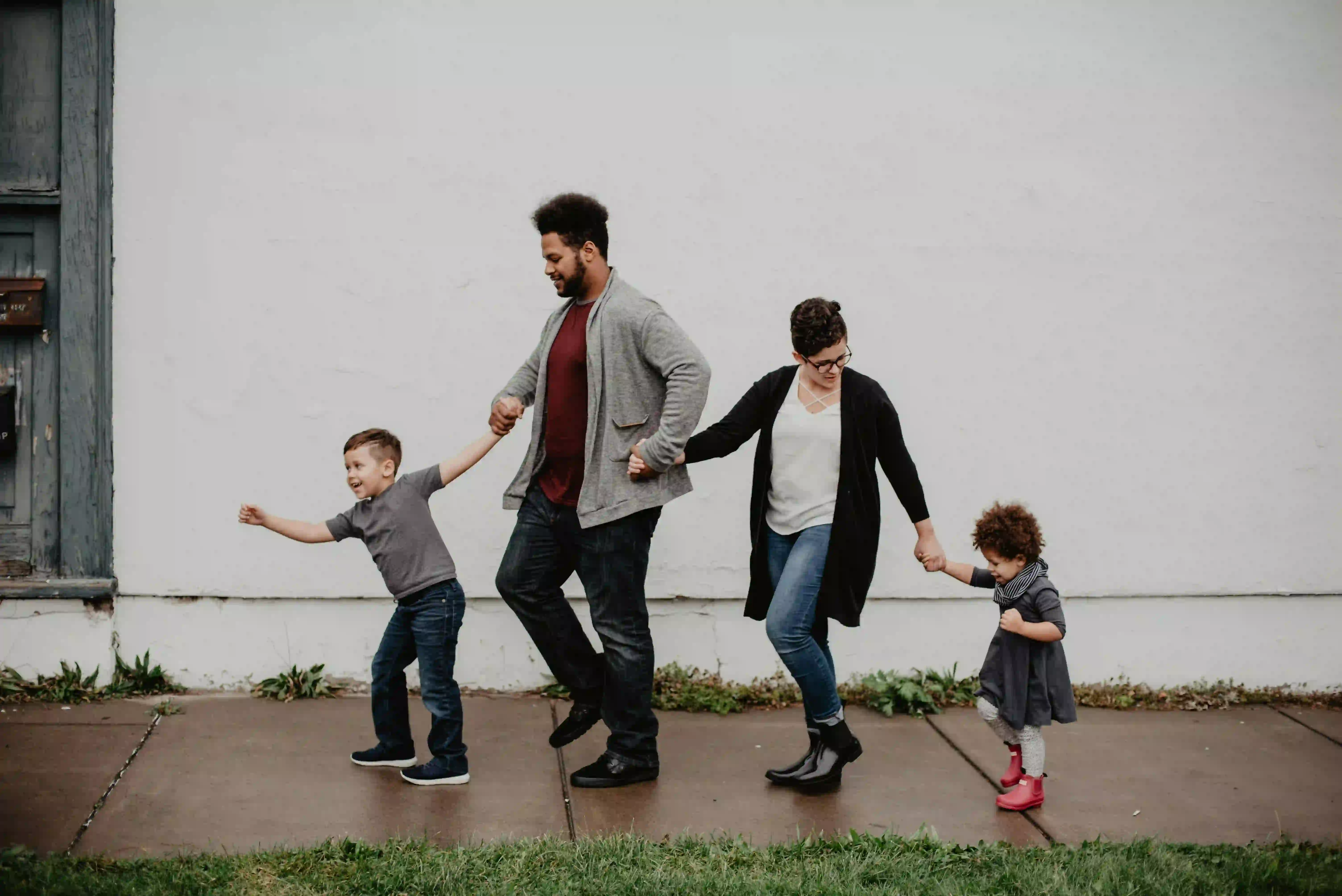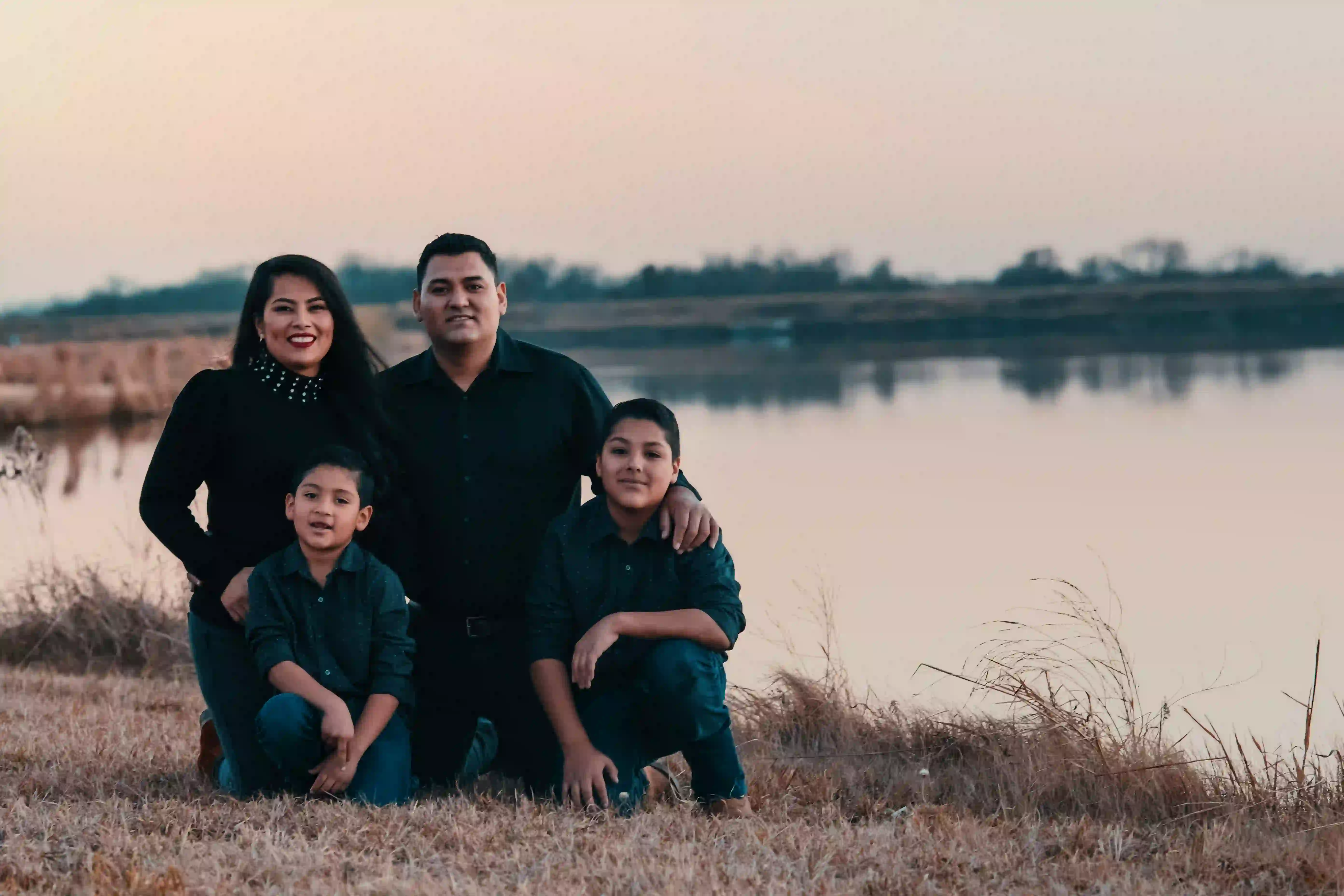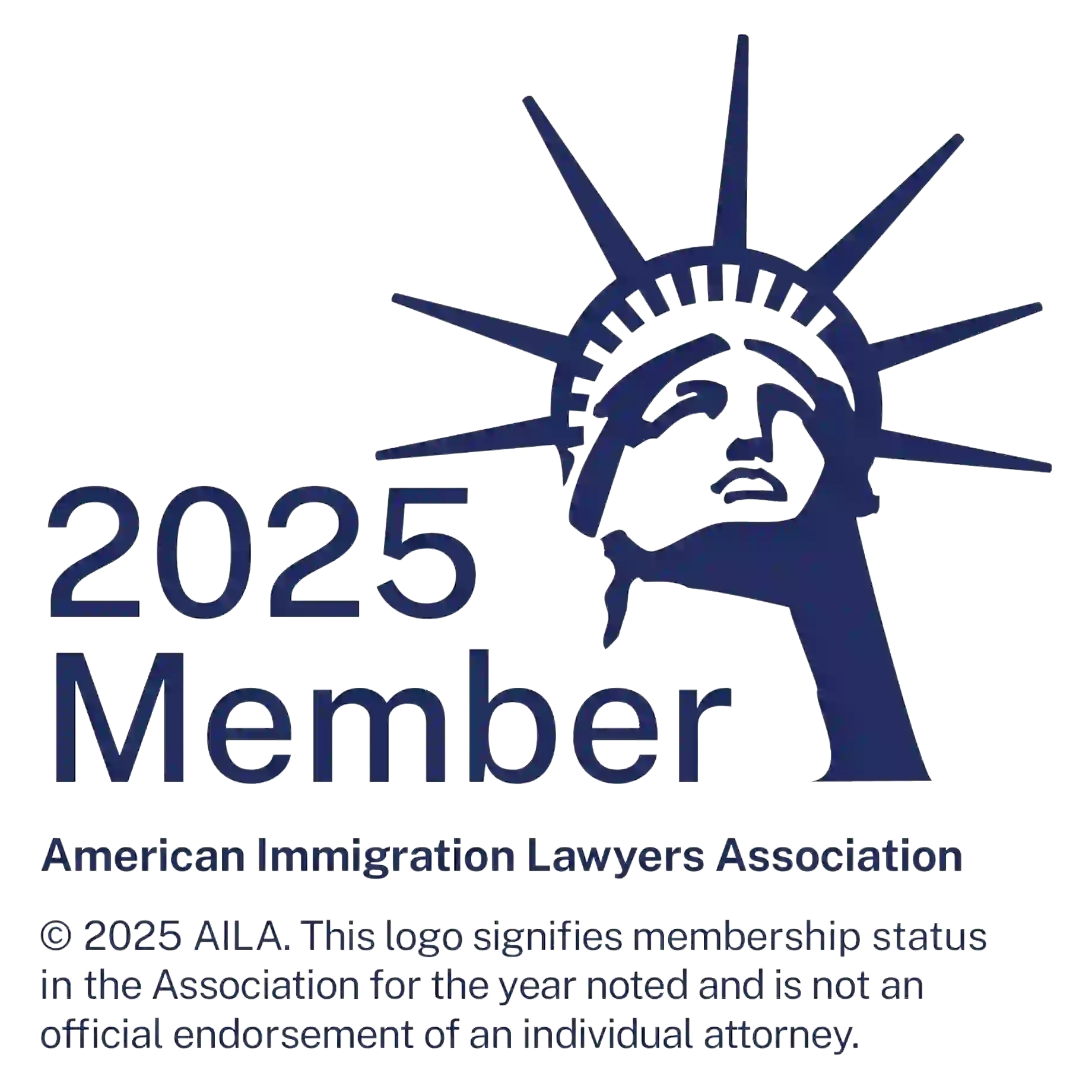Family Immigration

Comprehensive Legal Support for Family Immigration Matters
At Gorostiaga Law, we understand that family is the cornerstone of our lives. Our family immigration services are designed to help you reunite with your loved ones, guiding you through every step of the process with compassion and expertise. We proudly serve families across Elizabeth, NJ, including those seeking support in North End Elizabeth, Elizabethport, and the greater Downtown Elizabeth area, as well as nearby communities like Newark, NJ.
The United States has a long history of helping families reunite and build their lives within the same community. A huge part of our immigration system is built around the idea that families should be together. Having that longstanding history, however, does not mean it is an easy process. Family-based immigration has strict rules and deadlines that must be followed. A mistake can delay the process or result in a sad outcome for you and your loved ones.
Supporting Your Family’s Future
Take the First Step –
Complete the Form Below
All consultations are paid consultations. For more information regarding your immigration matter, please call us at 908-888-0029.
For general inquiry please fill out the form below. Thank you
What Brings You Here? Select a Focus
What You Need To Know About Family Immigration
What is Family-Based Immigration?
Family-Based Immigration Categories
Three Common Challenges to Family Immigration
1. Visa Caps
2. Insufficient Evidence
3. Does Not Include All Family Members
What is Family-Based Immigration?
Family-based immigration is part of the visa system that allows a U.S. citizen or permanent resident to sponsor non-citizen family members so that the latter can join the family in the United States. Through this program, visa holders can also lawfully work, attend school, and enjoy other rights and freedoms that U.S. citizens and permanent residents enjoy.
There are two types of family-based visas:
• Immediate relative; and
• Family preference
If approved, these visas are a path to permanent residency, also known as green card holders.
Most family-based immigration petitions are filed within the United States. The U.S.-based family member (the petitioner) files a petition on behalf of their relative (the beneficiary) with the United States Citizenship and Immigration Services (USCIS). The petitioner must also pay the relevant processing fees and provide all the necessary supporting documents.
We can guide you through the process, making sure all the necessary documents are filed, persuasive arguments are made, and all deadlines are met.

Family-Based Immigration Categories
The two family-based immigration categories are immediate relatives and family preference.
Immediate Relatives
The immediate relative category includes any of the following immediate relatives of a U.S. citizen:
• Spouses
• Widows or widowers
• Unmarried children under 21 and adopted children
• Parents
Immediate relative visas are prioritized. There’s no cap or limit to the number of visas issued each year in this category.
The bars to adjustment are also more flexible when it comes to immediate relative visas. This means that factors that otherwise might disqualify an individual from adjusting their status to permanent residence (such as overstaying their visa or engaging in unlawful employment) do not apply.
Family Preference
The family preference category is for extended family members of U.S. citizens, as well as immediate and extended relatives of U.S. permanent residents.
For U.S. citizens, the family preference visa includes:
• Unmarried children aged 21 or over
• Married children
• Siblings
For U.S. permanent residents, the family preference visa includes:
• Spouses
• Unmarried children
The number of family preference visas available is capped each year, resulting in long wait lists. The Department of State publishes a Visa Bulletin monthly, and as part of this bulletin, updates on immigration petitions and green cards are given.
Family Immigration Checklist
The family-based immigration process requires a series of forms to be filed with the USCIS. The first and most critical of these is Form I-130, Petition for Alien Relative.
In addition to completing the form, the petitioner must include legible photocopies–translated into English where necessary–of any relevant supporting documentation.
Supporting documentation for Form I-130 may include:
• Proof of the petitioner’s U.S. citizenship or permanent residency, like: birth certificate; naturalization or citizenship certificates; U.S. passport; or green card.
• Proof of the qualifying relationship, like: birth certificates; marriage certificates; evidence of bona fide marriage, e.g.: documentation showing property co-ownership, shared residence, combined financial resources, affidavits from people who know you and who can attest to your relationship and shared life, adoption decrees or certificates, evidence of legal custody of an adopted child over a two-year period.
Other required or potentially necessary forms include:
• Form I-485, Application to Register Permanent Resident or Adjust Statute
• Form I-485 Supplement A, Adjustment of Status under Section 245(i)
• Form I-797, Approval or Receipt Notice
• Form I-94, Arrival/Departure Record
• Form I-864, Affidavit of Support under Section 213A of the INA
• Form I-864EZ, Affidavit of Support under Section 213A of the ACT
• Form I-693, Report of Medical Examination and Vaccination Record
• Form I-601, Application for Waiver of Grounds of Inadmissibility
• Form I-212, Application for Permission to Reapply for Admission into the United States after Deportation or Removal
• Form I-612, Application for Waiver of the Foreign Residence Requirement
• Form I-508, Request for Waiver of Certain Rights, Privileges, Exemptions and Immunities
• Form I-566, Interagency Record of Request – A, G or NATO Dependent Employment Authorization or Change/Adjustment to/from A, G or NATO Status
Ensuring you provide sufficient documentation and all the right forms to support your application is crucial.

Three Common Challenges to Family Immigration
The largest percentage of lawful permanent residents in the United States comes from family-based immigration. However, the process is not without its challenges.
1. Visa Caps
While there are an unlimited number of visas for immediate family members, family preference visas are subject to annual caps. This means there can be substantial backlogs and lengthy wait times (years or even decades) for extended family members wanting to immigrate to the United States.
2. Insufficient Evidence
Evidence of a qualifying relationship is necessary for both immediate family and family preference visas. This evidence is especially important when it comes to spouse applications, where the petitioner must demonstrate a bona fide marriage. Gathering sufficient evidence of a relationship can be challenging, especially where official records are limited due to things like lack of rules or policies to maintain records or things like a war, where records have been destroyed.
3. Does Not Include All Family Members
Bringing family members to the United States via family-based immigration can be a highly emotive and stressful process. Letting a professional do the heavy work for you can bring both a lot of relief and the right results. Here are five reasons why you should consider retaining an attorney.
Information. An attorney will help you understand what is involved in the immigration process. Plus, immigration rules, regulations, and policies change often, and our immigration lawyer will keep you updated on everything you need to know.
Time unwasted. Anattorney can advise you as to the right category of visa to apply for and guide you each step of the way. In particular, we can help you complete the application form and compile the necessary supporting documents to ensure your application is properly prepared.
Delay prevention. As already mentioned, you must meet deadlines or else risk delays or denied petitions. As your legal representative, you will not have to worry about these deadlines because we make sure deadlines are met.
Appeals. If your petition is denied for any reason, we can move forward with a strong appeal. We already know the ins and outs of your case. The appeals process can be overwhelming, but we can help make sure a positive outcome is reached.
Protection of rights. Throughout the immigration process, you may come across some people who abuse their positions. We will make sure you and your loved ones are treated with respect and dignity and that your rights are upheld to the full extent of the law.
Contact an Immigration Lawyer
Family immigration is a way to keep families together and to help build communities. Handling an immigration case, however, is not easy – even for family-based immigration.
At Gorostiaga Law Firm, PLLC, we help you get the confidence you need to make sure your loved ones secure a legal path to the United States.
Recognized for Excellence in Immigration Law
Gorostiaga Law Firm is recognized for its dedication and excellence in immigration law. Its founder, Virginia Gorostiaga, has earned a place among the Top 10 Immigration Law Trial Lawyers and is a proud member of the American Immigration Lawyers Association (AILA), reflecting the firm's high standards and commitment to the field
Supporting Children’s Rights Through KIND
At Gorostiaga Law Firm, we believe in standing up for the most vulnerable—both in and out of the courtroom. As part of that mission, the firm proudly supports Kids in Need of Defense (KIND), a nonprofit organization dedicated to protecting the rights of unaccompanied and separated children.
KIND provides trauma-informed legal and social support to children navigating the immigration system alone. The firm's recent donation, driven by its commitment to social justice, helps further KIND's vital work, which includes direct legal assistance, advocacy for stronger child protections, and a commitment to compassionate, child-centered care
Solutions Built Around Your Needs
From complex cases to personal guidance, Gorostiaga Law Firm is your trusted partner in creating a secure future.
Testimonials
"My husband and I had a great experience with Virginia and her team. Members of the team are fluent in spanish- As a spanish speaking person I really appreciate how easy that made it to understand and follow the process even better. Anytime we had a question or concern they were very easy to reach and always made us feel very comfortable. 100% would recommend to work with them, you won’t regret it!"
- Maria Jose Meneses Meza

"I would recommend all my friends and family to Gorostiaga Law. Virginia is effortless at what she does and genuine lawyer who does things the right way from day one. Thank you for all your time you put on my case Virginia. Take care and hopefully I come back to seek for your legal advise soon."
- Rahin Ahmed

"Ms Gorostiaga is a conscientious dedicated judicious attorney. Ms Virginia Gorostiaga treats each of her clients with a level of respect and compassion that makes you feel valued and understood and lets you know that you will be treated with the utmost professionalism and dedication. I hope one day that Ms Gorostiaga will be more than my attorney, she will be a trusted faithful lifelong friend! I am trusting her with my life and my legacy"
- Edel Quinn

Our Dedicated Immigration Services in New Jersey
At Gorostiaga Law, we are dedicated to guiding you through the complexities of immigration law with compassion and expertise.
Our services include:
Reuniting families is at the heart of what we do. We assist with family petitions, fiancé visas, and other processes to bring your loved ones closer, providing compassionate guidance every step of the way.
Our firm supports businesses and professionals navigating the complexities of immigration law. We help secure work visas and employment-based green cards, facilitating growth and long-term success.
Facing removal proceedings can be daunting, but our experienced team is here to protect your rights and build a strong defense to help you remain in the U.S.
Citizenship and Naturalization
From permanent residency to citizenship, we simplify the naturalization process and ensure you meet all requirements for becoming a U.S. citizen.
Deferred Action for Childhood Arrivals (DACA)
We assist eligible individuals brought to the U.S. as children with applying for or renewing their DACA status, helping secure their futures and remain lawfully in the country.
For those seeking safety from persecution, we provide comprehensive support to apply for asylum or refugee status in the United States, offering experienced, client-focused representation.
Frequently Asked Questions
What services does Gorostiaga Law provide?
Gorostiaga Law specializes in immigration law, offering services such as family immigration, business immigration, naturalization. Our dedicated team provides personalized support to navigate the complexities of the immigration process. We strive to ensure our clients achieve their legal goals efficiently and effectively.
How can I schedule a consultation?
You can schedule a consultation by visiting our website and filling out the contact form. Alternatively, you can call our office directly to speak with a member of our team. We are here to assist you in setting up a convenient appointment.
What should I bring to my consultation?
During your consultation, please bring relevant documents such as your passport, visa, and any immigration paperwork you have. This information will help us better understand your case and provide tailored advice. If applicable, bring any additional documentation related to your family or business immigration needs.
How long does the immigration process take?
The duration of the immigration process varies based on the specific type of application and the current workload of immigration authorities. Our team will provide you with an estimated timeline during your consultation, considering your unique circumstances. We aim to keep you informed and updated throughout the entire process.
Do you offer services in multiple languages?
Yes, our team at Gorostiaga Law is multilingual and can assist clients in English, Spanish, Portuguese, Hindi, and Gujarati. We believe that clear communication is crucial for a successful legal experience. Our goal is to ensure that all clients feel comfortable and fully understand the legal process.
How do I know if I have a civil case worth pursuing?
If you’ve experienced financial loss, property damage, a contract breach, or reputational harm, it may be worth pursuing legal action. We offer consultations to help you evaluate the merits of your case and your best path forward.





